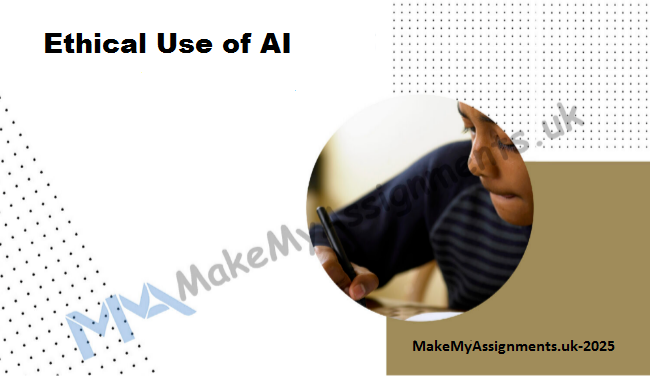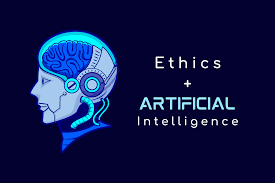Students often struggle with stress, anxiety, lack of focus, and constant distractions. Between assignments, exams,…

Ethical Use of AI
Artificial Intelligence (AI) has changed the way we live, study, and work. From writing assistance and virtual tutors to personalized learning apps and assignment help platforms, AI is everywhere. But with great power comes great responsibility. As college students increasingly rely on AI tools, it’s important to discuss a topic that’s often overlooked — the ethical use of AI.
Knowing how to use AI responsibly can protect your academic integrity, improve your critical thinking, and help you become a smarter digital citizen in a tech-driven world.

1. Understanding What Ethical AI Means
Ethical AI refers to the fair, honest, and responsible use of artificial intelligence. This includes using AI tools in ways that do not promote plagiarism, harm others, or violate privacy rules. When students use AI tools, they must understand the boundaries — what is allowed and what is not.
Using AI to help organize notes or summarize articles is okay, but using it to copy entire essays and submit them as your own work is not.
2. Avoiding Academic Misconduct
AI tools can write essays, solve math problems, and generate code. But submitting this work without your own input may be considered academic dishonesty in many institutions. Most colleges have strict policies, and misuse of AI can result in serious consequences, including failed assignments or even suspension.
Some students doesn’t realize that using AI without proper citation is equal to copying from another student — it’s still cheating.
3. Giving Credit Where It’s Due
If you use AI-generated content in your project or research paper, it’s ethical to mention the tool and how it was used. Just like citing a book, journal, or website, AI tools also deserve credit. This shows transparency and helps professors understand your process.
Being honest about your sources builds trust — and that includes AI platforms.
4. AI Should Be Your Assistant, Not Your Brain
AI is like a helpful assistant. It can brainstorm ideas, suggest outlines, check grammar, or even answer your questions — but the real thinking and decision-making should come from you. Relying completely on AI prevents you from developing critical skills that are essential for your career and personal growth.
Don’t let AI think for you — let it help you think better.
5. Data Privacy and Safety
When using AI platforms, always be cautious about the information you share. Avoid uploading sensitive personal or academic details unless you’re sure the platform is secure. Ethical AI use also means respecting your own and others’ privacy.
Sharing someone else’s assignment on an AI tool without their permission is unethical and may violate their privacy.
6. Promoting Fairness
AI can sometimes show bias or provide incorrect answers. Ethical students must learn to question and verify information, not blindly trust it. Always cross-check AI-generated responses with trusted sources and use your own judgment before accepting the output.
Not every answer is always right — even if it comes from a machine.
How MakeMyAssignments Can Help Students
At MakeMyAssignments, we promote ethical academic support by encouraging students to use AI responsibly. Our team offers expert guidance and original content tailored to your assignment needs. We help you understand how AI can be used the right way — to support learning, not to replace it. Whether you need help with citations, improving structure, or researching a topic, we make sure our support aligns with your institution’s academic integrity policies. We believe in helping students grow with honesty, skill, and knowledge — not shortcuts.




This Post Has 0 Comments